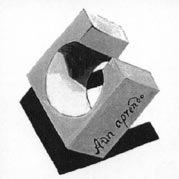AHA, 12/13 (2012/2013), 353 pp., ISBN 978-3-643-90587-1
Contents:
• Alessandro Maurini, “On Pacifist and Cooperative Realism: A Misunderstanding in Turin Between
Aldous Huxley and Giuseppe Prezzolini in 1958,” 1-14
• Aldous Huxley, “Seconda Visita a un Mondo Futuro” [1958], 15-22
• Aldous Huxley, “A Second Visit to a Future World” (trans. Alessandro Maurini), 23-30
• James Sexton, “Huxley’s Fascination with St Catherine of Siena: His Never-Completed Historical Novel,”
31-46
• Aldous Huxley’s Drawings for “Leda”, 47-50
• Gerri Kimber, “A Note on Huxley’s Sketches for Leda and the Swan,” 51-56
• Rosa Borgonovi, “Aldous Huxley and the Sense of Travel: Between Journey and Metaphorical
Exploration,” 57-79
• Brian Smith, “Elements and Causes: Deducing the Present from the Past in Aldous Huxley’s Grey
Eminence,” 81-103
• R. S. Deese, “Agnostic Gospels: Divining Nature in the Work of Julian and Aldous Huxley,” 105-119
The Second Peter Edgerly Firchow Memorial Essay Prize:
• Hisashi Ozawa, “John and Ishi, ‘Savage’ Visitors to ‘Civilization’: A Reconsideration of Aldous Huxley’s
Brave New World, Imperialism and Anthropology,” 123-147
• Painting by Carolyn Mary Kleefeld: “of each other”, 148
Papers from the Huxley Conference and the Fifth International Aldous Huxley Symposium Oxford 2013:
• Uwe Rasch, “The Oxford Huxley Forum: ‘Huxley and a New Generation of Readers’,” 151-154
• Kirpal Singh, “Why the Poetry of Aldous Huxley Matters Now: A Personal Perspective,” 155-160
• Robin Hull, “How Swiss Teenagers Read Brave New World,” 161-166
• Peter Wood, “Huxley’s Prescient Views on Education in Today’s American Classroom: A Personal View,”
167-175
• Bianca Aguirre, “An Undergraduate’s Perspective on the Oxford Huxley Conference 2013,” 176-180
• Uwe Rasch, “‘Zen Archers: No Competition’. An Afterword to The Oxford Huxley Forum,” 181-194
• David Bradshaw, “‘A Blind Stay-at-Home Mole’: Huxley at Oxford 1913-1916,” 195-222
• Claudia Rosenhan, “Vera Brittain and Aldous Huxley: A Testament / Defeat of Youth - A Gendered
Response to Education and War?,” 223-242
• Bernfried Nugel, “‘To Mustapha I Knowe the Worldes Affection’: Fulke Greville in Aldous Huxley’s Early
Writings,” 243-264
• Gerd Rohmann, “The Title of Brave New World: Original Meanings and Current Implications,” 265-274
• Jesús Isaías Gómez López, “Doing Justice to Aldous Huxley’s Un Mundo Feliz: The Three Translations of
Brave New World Into Spanish,” 275-290
• Marketa Goetz-Stankiewicz, “Huxley is Indeed Our Contemporary: Brave New World Seen Through Czech
Eyes,” 291-302
• A. A. Mutalik-Desai, “‘Enemies of Freedom’: Aldous Huxley’s Views, 1932-1958,” 303-317
• Jerome Meckier, “‘My Hypothetical Islanders’: The Role of Islands in Brave New World and Island,”
319-340
• Dana Sawyer, “Aldous Huxley and the Paranormal,” 341-353


